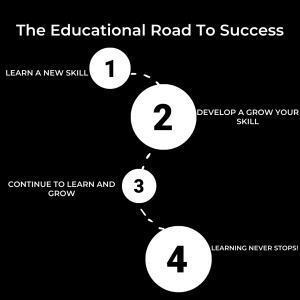Time Management Tips for Students: Boosting Productivity and Achieving Success
Effective time management is crucial for students aiming to balance academic responsibilities and personal interests. By implementing structured planning and prioritization techniques, students can enhance their productivity and reduce stress. Learning to manage time efficiently not only leads to better grades but also allows for more leisure time and self-care.
Many students struggle with procrastination and distractions, making it challenging to stay on track. Successful time management strategies, such as creating to-do lists, setting deadlines, and breaking tasks into smaller steps, can combat these pitfalls. These techniques empower students to take control of their schedules and make the most of their time.
In a world filled with endless responsibilities and opportunities, mastering time management can transform a student’s experience. By adopting proven methods, individuals can improve their focus, meet deadlines, and achieve their academic goals with greater ease.
Understanding Time Management for Academic Success
Time management is critical for students aiming for academic excellence. Effective management of time enhances productivity and minimizes distractions. Awareness of common time wasters is essential for maintaining focus and maximizing learning potential.
The Importance of Time Management in Education
Proper time management is vital in education as it directly correlates with academic performance. By allocating specific time slots for studying, completing assignments, and participating in extracurricular activities, students can reduce stress and improve their outcomes.
Effective planners often set priorities, identifying tasks based on deadlines and importance. They utilize tools like calendars and to-do lists, ensuring they allocate adequate time for each assignment.
Additionally, managing time can help students identify productive hours, optimizing their study sessions. Scheduling regular breaks prevents burnout and keeps motivation high during lengthy study periods.
Common Time Wasters for Students
Students encounter numerous distractions that can derail their study schedules. Recognizing these time wasters is crucial for improving productivity.
Social Media: Browsing social media platforms can consume hours unexpectedly. Setting limits on usage or scheduling specific times for engagement can help mitigate this issue.
Multitasking: Trying to study while watching television or listening to music often hinders focus. Research shows that concentrating on one task at a time leads to better retention of information.
Procrastination: Delaying important tasks until the last minute increases stress levels. Developing a routine that includes starting assignments early can combat this tendency.
By identifying and addressing these distractions, students can enhance their time management skills and achieve greater academic success.
Strategies for Effective Time Management
Implementing effective time management strategies is essential for students to balance academic and personal commitments. Proper organization and understanding of one’s peak productive times can significantly enhance performance and well-being.
Prioritizing Academic and Personal Projects
Students should evaluate their projects based on deadlines and importance. Using a priority matrix can help in this process. This matrix divides tasks into four categories:
- Urgent and important: Complete these tasks first.
- Important but not urgent: Schedule these for later.
- Urgent but not important: Delegate if possible.
- Neither urgent nor important: Consider eliminating these.
This approach helps students focus on what truly matters, reducing stress and enhancing productivity. Another tip is to regularly reassess priorities as deadlines approach or new tasks arise.
Creating a Weekly Schedule That Works
A well-structured weekly schedule offers clarity and purpose. Students should start by listing all assignments, exams, and personal commitments. Using tools like planners or digital calendars can be beneficial for visualizing weekly tasks.
- Block time for studying, attending classes, and personal activities.
- Include buffer times between tasks for unforeseen delays.
This structured approach allows flexibility while ensuring that essential tasks remain manageable and achievable. Regularly reviewing and adjusting the schedule is crucial for staying on track.
Making the Most of Productive Times and Peaks
Identifying peak productive times allows students to maximize their efficiency. This can involve tracking energy levels throughout the day and determining when focus is highest.
- Morning hours might be ideal for difficult subjects.
- Afternoon could be better for less intensive work.
Encouraging breaks during long study sessions can also help maintain alertness. Techniques such as the Pomodoro Technique, where one studies for 25 minutes followed by a 5-minute break, can enhance concentration and productivity.
By honing in on these strategies, students can develop a more effective approach to managing their time.
Tools and Techniques to Stay on Track
Time management can be significantly enhanced by utilizing specific tools and techniques that support organization and prioritization. These methods help students create a structured approach to their tasks and responsibilities.
Leveraging Technology for Better Time Management
Today, technology offers numerous tools that can help students manage their time effectively. Calendar applications, such as Google Calendar, allow users to schedule classes, assignments, and study sessions. Utilizing reminders ensures tasks are not forgotten.
Additionally, platforms like Remember the Milk provide an intuitive interface for creating to-do lists and setting deadlines. Students can categorize tasks by priority, helping them focus on what’s urgent. Some apps even offer integration with email systems to convert messages into tasks.
By adopting these digital solutions, students can visualize their schedules and gain insights into how they allocate their time.
The Role of To-Do Lists and Time Management Apps
The implementation of to-do lists can dramatically improve task management for students. A simple checklist helps in organizing both academic and personal responsibilities. Writing down tasks provides clarity and reduces mental clutter.
Time management apps enhance the functionality of traditional lists. Features such as deadline tracking and progress monitoring keep students accountable. For instance, apps that offer time budgeting tools can help students allocate specific hours for each task, ensuring balanced workloads.
Incorporating a daily or weekly planning ritual can reinforce these habits. Consistent use of these tools leads to increased productivity and enhanced time awareness.
Practical Tips for Balancing School Life
Effective time management is crucial for students to thrive in academic and personal pursuits. Proper allocation of time for tests, transportation, and the inclusion of regular breaks can significantly enhance productivity and reduce stress.
Allocating Time for Tests and Transportation
Students should budget their time wisely, considering both study sessions and travel time to and from school. Creating a daily or weekly schedule can help identify when to allocate time for reviewing materials and preparing for tests.
A suggested approach is to:
- Identify key dates for tests: Mark these on a calendar to prioritize study sessions.
- Plan transportation: Account for travel time when scheduling study periods, ensuring they leave enough time between commitments to avoid rushing.
The use of apps or planners can help track these commitments efficiently.
Importance of Taking Regular Breaks
Regular breaks are essential for maintaining focus and preventing burnout. Studies suggest that taking short breaks during study sessions can improve retention and overall performance.
Students should consider the following tips:
- Use the Pomodoro Technique: This involves studying for 25 minutes followed by a 5-minute break. After four cycles, take a longer break of 15-30 minutes.
- Incorporate physical activity: Engaging in brief exercise or stretching during breaks can rejuvenate the mind and body.
Consistent break patterns lead to greater productivity and help in managing stress levels effectively.


